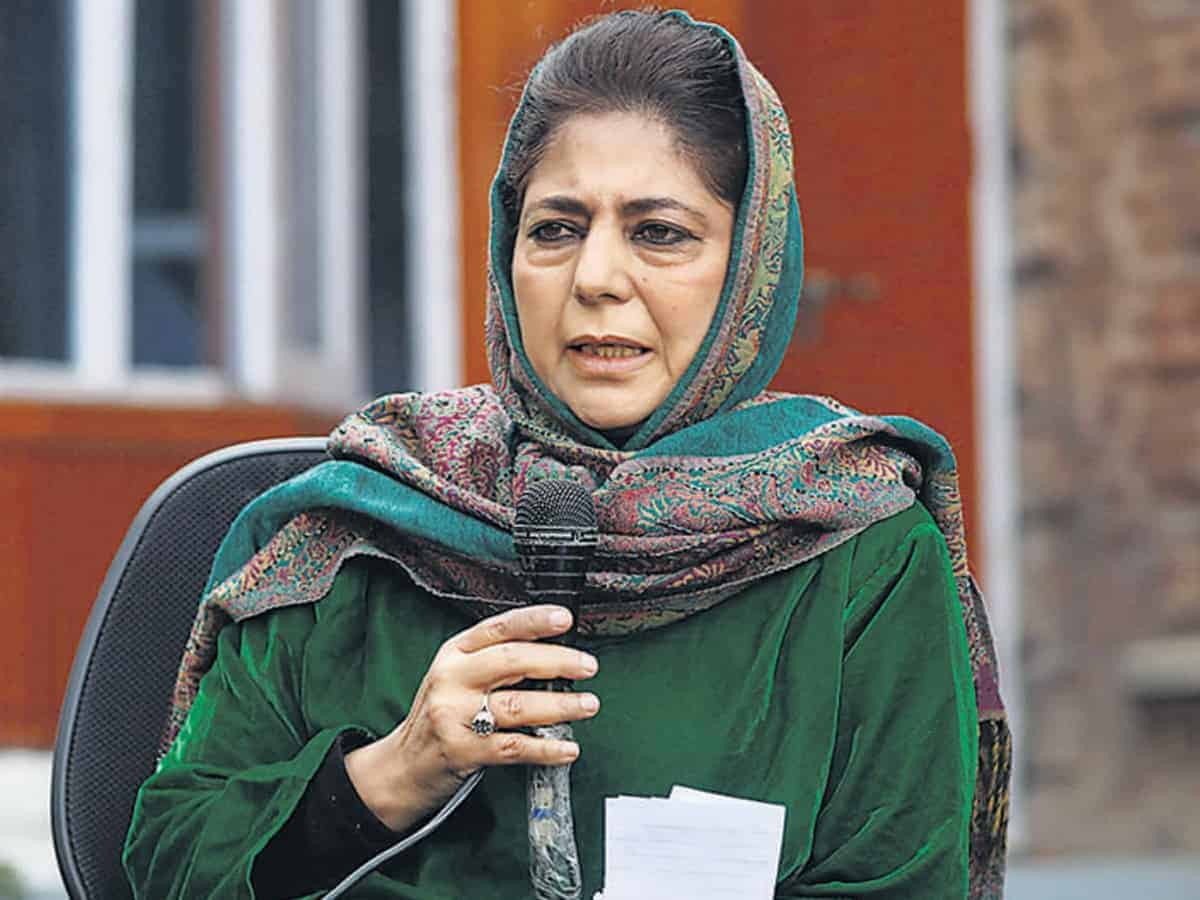
A major political crisis has hit Jammu and Kashmir as the Election Commission of India has announced the inclusion of non-locals, including the security personnel, in the electoral rolls, the revision of which is underway at the moment. In addition to the revision of the electoral rolls, the ECI has now announced that all the non-locals, including the service voters, were entitled to get themselves included in the revised electoral rolls. This is expected to increase the number of voters in the Union Territory of Jammu and Kashmir at least by 25 lakh, which the Kashmir-centric regional parties, have termed as the BJP’s designs to capture power in J&K through back door routes.
The electoral rolls will be revised from September 15 and the final draft is scheduled to be published on November 25, which envisages that all those attaining the age of 18 before and by October 1 will be eligible for getting enrolled and voting in the next Assembly polls, that was understood as a clever way of postponing the Assembly polls until the mid-2023. The latest pronouncement, made by the Chief Electoral Officer Hirdesk Kumar Singh in Jammu on Wednesday, that non-locals too have the right to get enrolled in the UT as voters and exercise their franchise in the coming elections, added many critical dimensions to the already troubled waters in Jammu and Kashmir.
Almost all the regional parties, parties having base in the Valley and adjoining hilly areas of Jammu region, reacted sharply to this announcement, and they will deliberate on a joint strategy at an all-party meeting convened by the National Conference president Farooq Abdullah on Monday – August 22. “ We are passing through a difficult phase and we hope to chalk out a new strategy to see what can be done at the all-party meeting sans BJP,” he said after his party and the PDP, the party headed by former chief minister Mehbooba Mufti, called for a united response to, what they called this fresh onslaught on the electoral democracy in Jammu and Kashmir, already reeling from the “unconstitutional doing away with the special status of the (erstwhile) state of J&K on August 5, 2019.
Mehbooba made a very critical appreciation of the new announcement, in which she feared that the BJP is moving beyond its stated agenda of Hindu Rashtra. “Let my countrymen understand that the BJP is not for Hindu Rashtra, in fact, it wants to swamp everything to establish BJP Rashtra. The party wants power at all costs and is not shy of doing anything under the sun to achieve its goal. The country should wake up to the dangers looming on the horizon.”
The fact remains that the political deficiency in Jammu and Kashmir has widened further as for the first time the non-locals of all hues will be entitled to get enrolled as voters and vote in the Assembly polls. This has underlined the concerns of the Kashmir- centric parties, thriving on the theme of the distinct identity of the people of the Valley, that these changes will amount to rigging of elections.
The Election Commission of India which has asked for the complete revision of the electoral rolls to be completed by November 25 on August 17 added yet another clause, saying that, in the revised electoral rolls, all the outsiders residing in J&K, including migrant labourers, government employees and the security forces personnel of the army and the central paramilitary armed forces, too would be entitled to get enrolled as the voters. It cited the provisions of the People’s Representation Act. This effectively changes the whole electoral scenario and space – the locals who were the sole claimants to vote in the Assembly polls until the last elections held in 2014, will now have to share their political space with the non-locals.
Read against the backdrop of the government’s intentions to widen the scope for all those who were not having these voting rights until now, this is becoming increasingly evident that there would be a bulge in the electoral list as this will bring tens of thousands of new voters in the existing voters’ list for all the 90 constituencies demarcated by the Delimitation Commission in its final report of May 5 this year. This expected bulge works two ways; one, it will increase voters who have no love lost for Kashmir’s regional parties, which had been in the governments on their own or in alliance with national parties. The outsiders know that the regional parties are against their voting rights in J&K, hence a fair conclusion can be drawn that they will not vote for the regional parties. In the consequential political scenario, their choice is limited to national parties. BJP appears to be a certain gainer.
Although it was known to the locals across J&K, since the abrogation of Article 370 on August 5, 2019, that they would not be entitled to their exclusive rights in the political and economic spaces, but the way things have unfolded in the past over three years
Political leaders of Kashmir have not missed on this potential outcome in case the elections are held with the new opportunities and rights being conferred to the “outsiders.” – a term that the BJP thinks has become redundant following the abrogation of Article 370 (in August 2019) because now all the people of the country have equal rights as were available to the erstwhile permanent residents of the state of J&K. PDP chief and former Chief Minister Mehbooba Mufti who has emerged as the most critical voice of the constitutional changes made three years ago, has stated it categorically that the “Government of India’s decision to defer polls in J&K preceded by egregious gerrymandering tilting the balance in BJP’s favour and now allowing non locals to vote is obviously to influence election results,” and she emphasized that the “real aim is to continue ruling J&K with an iron fist to disempower locals.”



